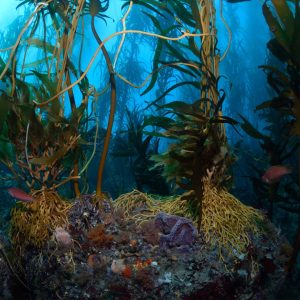Green Christmas instead of consumer frenzy and waste madness

Christmas is fast approaching. At no other time of the year are so many resources wasted and mountains of garbage piled up as around December 24th. as in all areas of life, we can be more mindful of our environment during the festive season and counteract the consumer frenzy.
The mountain of garbage is growing
Parcel shipping increases, especially during the festive season, and with it the amount of waste paper. The Christmas period alone generates an additional 5,500 tons of paper and cardboard waste. Heavily coated paper cannot be recycled as waste paper but must be disposed of with the residual waste (or incinerated).
Alternative: You can either use old paper as wrapping paper. Or get creative and wrap presents in fabric, saved boxes or pretty bags left over from shopping. There are no limits to your imagination!

Consumption frenzy: 40% of all household emissions
At Christmas in particular, we buy lots of things that we/others don't need, for example, gifts that we feel we need. In principle, we consume too much. According to Greenpeace, the production and use of consumer goods is responsible for up to 40 percent of greenhouse gas emissions from households that are harmful to the climate.
Alternative: We give the gift of time, which we spend together. Be it at a concert, a trip together or a visit to a movie theater or restaurant. Or at workshops or events in the area, or even vouchers for small repair jobs, babysitting or help around the house. Satisfaction is guaranteed to increase and the exchange rate will fall.

A quarter of all parcels returned
At Christmas in particular, one in twelve people buy their gifts exclusively online. Returns of online purchases are problematic, as they are often thrown away because it would cost companies more to put them back into circulation. The EU has put a stop to this practice in the textile sector in 2023.
According to Greenpeace, a quarter of all parcels are sent back. However, much of this is not used, as a quarter of parcels are sent back.
1 package returned = CO₂ of electricity consumption for one day
The return of one parcel alone causes as many CO₂ emissions as the electricity consumption of an Austrian household for an entire day. What's more, Christmas parcel deliveries not only generate an additional 5,500 tons of paper and cardboard waste, but too often the returned goods are also destroyed.
Alternative: Buy real and regional instead of online, which unfortunately is not always possible. When we shop online, we should try to choose the right thing based on the reviews and feedback and not have five different things sent to us to look at. If you go shopping in real life, you are well advised to browse second-hand stores, buy refurbished products or look for meaningful gifts in small local stores.
The festive table
Food waste - 1 million tons/year
We often buy more than we then consume, which is particularly the case during the festive season. Afterwards, this food ends up in the residual waste. In Austria, almost one million tons of food are currently thrown away every year in production, retail, canteens, restaurants and households. We have already reported HERE on the number of animals worldwide that die without ever being eaten.

Meat and fish
On average, we currently eat three times as much meat as is good for us. Of course, this doesn't mean that we have to give up our traditional Christmas dinner. we can make sure to source products from sustainable production and from the region. And some people are quite prepared to conjure up a meat-free feast - there are plenty of recipes for this. For example, we have conjured up a vegan goose.
Unfortunately, when it comes to fish, you always have to bear in mind that many fish species are overfished. That's why local fish from regional farms makes the most sense.
Christmas tree, fairy lights and decorations
Over the years, the offerings in this area have become increasingly diverse. But not necessarily more sustainable, as we know.
Sustainability when buying a Christmas tree - a difficult topic
In the dark season, we enjoy light more than ever. The use of fairy lights to decorate indoor and outdoor spaces is part of this. That's why we've put together some tips on this topic, which you can read HERE!






